‘How my experience of birth trauma changed me forever’
To mark World Mental Health Day, vlogger and author Vicki Psarias AKA Honest Mum speaks about how a difficult childbirth transformed her life
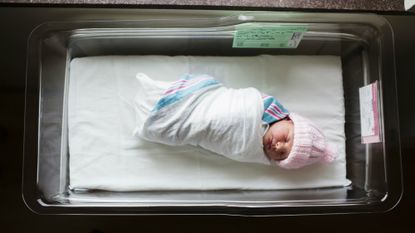
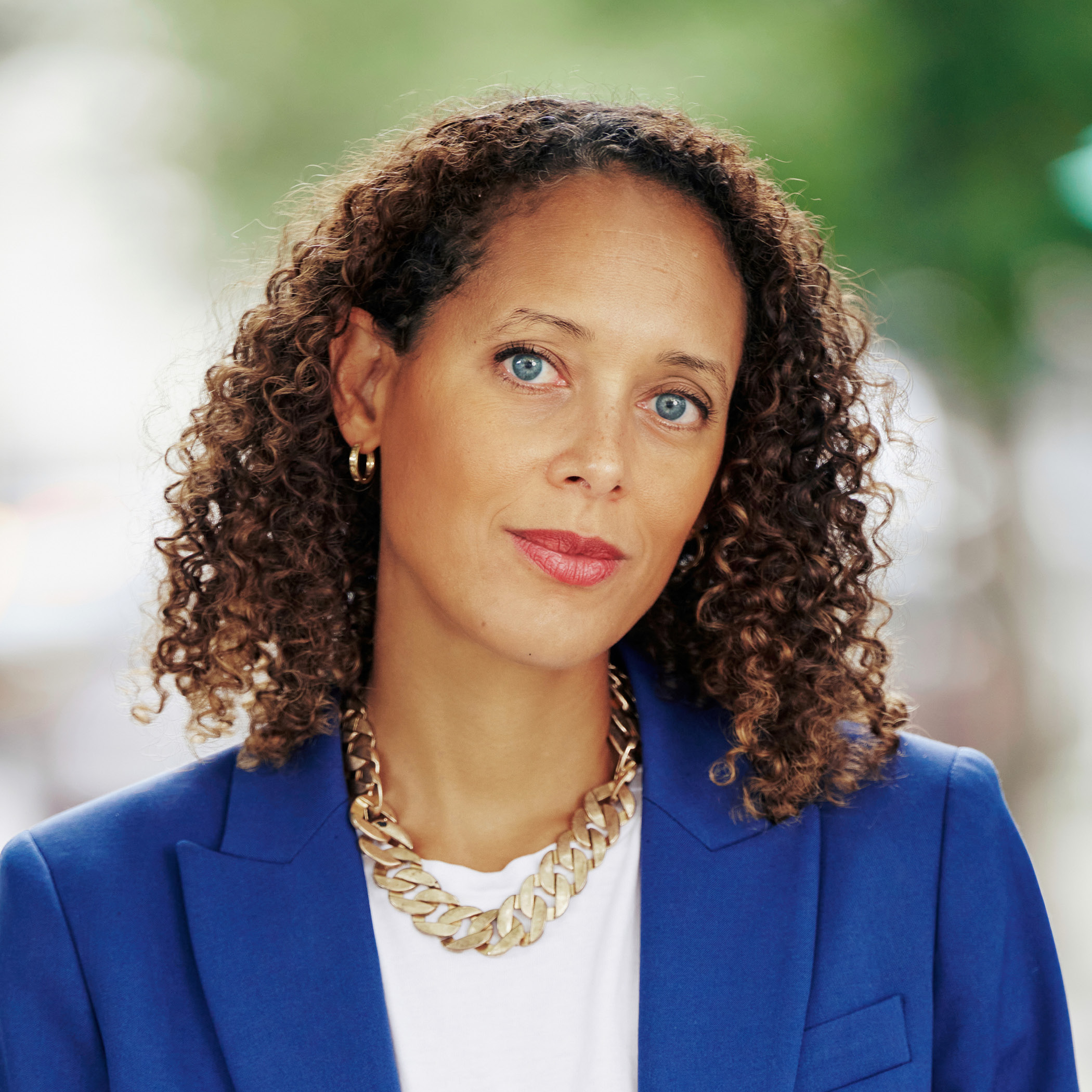
To mark World Mental Health Day, vlogger and author Vicki Psarias AKA Honest Mum speaks about how a difficult childbirth transformed her life
My son was born in 2010 and the life changing circumstances of his birth are something I've revisited over the years on my blog Honest Mum, such was the impact on my life.
Oliver is now 7, my bambi eyed firstborn son, a boy that if I'm honest, I only got to properly enjoy when he turned 10 months old. His was a deeply traumatic birth, a post induction and a crash section, or emergency as it's more commonly known ( although ‘crash’ is far more accurate a description of that manic rush to theatre in deep panic, the not knowing, the overwhelming sense of, ‘this isn't how it was meant to be’, the loss of control, the trauma... The pain). Following his birth, I felt I was drowning rather than living through the movie-like promise of motherhood I’d been fed my whole life
It took me five years to finally find the courage to write about my experience of birth trauma, to be able to process and share the pain from a place of renewed strength and understanding. Perhaps not surprisingly, the post became one of my most-read with thousands of women admitting it struck a cord with them too.
I was diagnosed with the pregnancy liver condition ICP at 8 months pregnant, a mostly baffling pregnancy condition in dire need of further research, which meant constant blood tests, ambiguous advice and overwhelming worry towards the end of my pregnancy. I still mourn that lost first year of his life, the one I felt I should have relished, the one I thought I'd prepared for. I mourn that stolen time, where I operated in survival mode, an empty shell of a mother who should have felt more joy.
I was scared to admit how dark those times felt or how alone and lonely I was, I'm not sure I've ever felt worse than after his birth, particularly when my husband returned to work following his two weeks of leave.
I could barely walk post-op, let alone think or ask for help, a colicky baby attached to me 24/7 who’d often cry for 6 hours straight and hated sleep, meant I had no time to inhale, to pause or ask for help.
Marie Claire Newsletter
Celebrity news, beauty, fashion advice, and fascinating features, delivered straight to your inbox!
Understandably, but frustratingly, I found myself in a body I no longer recognised, bruised from surgery, wobbly from pregnancy, tired and aching.
My confidence had gone.
A first child will always be a shock to the system with many of us undergoing a period of mourning for our former life: the sleep, the freedom, the 'you' that came before, because motherhood defines you when it happens. Suddenly, and as Miranda in Sex and the City so eloquently put, ‘ Life comes in and things begin to change. It's weird. It's like suddenly there's a giraffe in the room. Hello'. In that moment your life transforms. Your new baby depends on you to be your best so it can survive, and thrive.
But what if you don't feel strong? What if you feel weak and exhausted? What if you’ve lost all strength and self-belief? Your shoulders, weary, weighed down, crushed by the enormity of responsibility makes asking for help a near impossible feat. To admit that you need help. That you simply can't. Not today. Not tomorrow. You need a break. A chance to take it all in.
Yet your pride prevents you for reaching out, you feel a failure, the biggest failure of all in fact, you question why motherhood, the most natural thing in the world, could feel so hard. You blame yourself, for it must be you. A million other women nailed it.
To say you don’t feel well when all around you (and by all, I mean the picture in your head you painted of this time before the birth, the stories the media told you of how life is meant to be with baby) means that whilst you feel like you’re free-falling, you fail to find the words to speak up, to hold your hands out and ask to be caught, and held and helped.
I have the most loving and supportive husband, Peter, and parents who would do anything for me but living in London whilst they were in Leeds meant more than a few days together was all we had. Plus I self-silenced. Not once, during the bleakest of times - my head spinning, the countdown of hours until my husband was home from work, struggling with the identity-loss, fear and lack of stimulation - did I speak up.
I didn’t articulate a word.
I feared I would just worry others, that I would be deemed an unfit mother. Furthermore whilst trying to discuss my concerns with my doctor, she told me it wasn't PND, that I looked and seemed fine to her, yet now I know I was reeling in the aftermath of my son's traumatic birth (PTSD) and needed love, support and therapy to heal.
Going from directing sets of hundreds to just baby and me, felt odd. I was structureless, a mile of days and weeks ahead of me, without plans or rituals. A full stop.
It didn't help that my friends were mostly single and without babies of their own and whilst I made new mum-mates, the pressure to perform around new people, to put on a brave face and be your best self made me withdraw even more.
Eventually I admitted defeat. The turmoil could not continue. The pretence that all was well had to STOP. I cried for help and thankfully, I found it.
Moving back to Leeds, I immersed myself in a blanket of unconditional love and care, my Mum was able to help me with the day-to-day care of my baby which meant soon enough, I started to improve.
If only I'd known opening up would help so much.
With renewed strength (oh the irony of needing to feel strong to admit weakness) I asked my new GP if I could be referred to a therapist (you can now self-refer) and I was forced to politely demand (if demanding can be polite) to see someone.
Healing came in the form of writing about my experiences and CBT (Cognitive Behavioural Therapy) which helped me regain control and happiness once more.The calm pregnancy and birth of my second son inevitably helped too yet sometimes even now, I catch myself watching Oliver asleep, his spidery lashes fluttering with every breath, and I weep for that lost time.
With the help of a therapist, a Cognitive Behavioural Therapist, we created an emotional first aid kit together, chatting in depth about my past, my fears, my goals and the tools to help me when worries took over and the trauma felt too much. I learned the skills to pause, meditate and rest my busy mind. To cope. Mostly, he asked me questions I finally faced and answered, and slowly with his help, with everyone's help, I began to feel more like my old self.
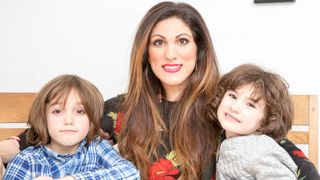
I eventually faced up and accepted that sh** happens and moved onwards with my life. My blog was a lifeline, another form of therapy if you like. It helped me rediscover my voice at a time I felt I had none and connected me to like-minded women (and men) online who simply 'got me' and many too who'd been through what I had.
My blog offered me a space, a platform to create and reach a like-minded audience, and later a business, an accidental career I loved, which lead to me writing becoming an author too
I was a finalist in the BritMums Brilliance in Blogging Awards in the Fresh Voice category surprisingly four weeks after going live on my first post. So unexpected I danced around the living room, tears streaming down my face. My voice somehow seemed to resonate with others, and crazy tales of my Big Fat Greek family (such as Dad and a Little Case of Chicken Pox) seemed to entertain. The voice I thought had gone, was back and that award nomination gave me the much-needed boost I to return on set, to direct again.
When Oliver turned 2, I discovered I was pregnant again, and despite the odds of developing ICP and potentially experiencing another traumatic birth, neither occurred.
Thanks to the vital care of my consultant (thank you, the NHS), my elective C section was tranquil, a joy I wasn't sure I'd ever have, but did.
Big haired, almond eyed Alexander looked just like his older brother at birth and this time, I felt empowered, in control and incredibly content.
I wanted to finally write my experience down as I'd hoped to many times before but couldn't find the words, to share the light that came after the palpable, paralysing darkness. My concern then was that one day my son would look back on this and be saddened by it all. He was loved so much (and still is) but will never know the pain I felt in his first 10 months.
My only wish is that I'd asked for help far sooner than I did. I wish I’d known that the determined perfectionist approach I applied to my job would not work in real life.
Vicki's book Mumboss: How to Survive and Thrive at Work and at Home is available to pre-order now

Andrea Thompson is Editor in Chief at Marie Claire UK and was recently named by We are the City as one of the UKs top 50 trailblazers for her work highlighting the impact of Covid on gender equality.
Andrea has worked as a senior journalist for a range of publications over her 20 year career including The Sunday Times, The Guardian, The Daily Mail, Channel 4, Glamour and Grazia. At Marie Claire Andrea is passionate about telling the stories of those often marginalised by the mainstream media and oversaw a feature about rape in the Congo that won the title an Amnesty Media Award. She also champions women's empowerment, sustainability and diversity and regularly chairs panels and speaks at events about these topics. She sits on the committee of the British Society of Magazine Editors where she acts as Vice Chair and looks after Diversity and Inclusion. She regularly mentors young women from under represented communities trying to break into the media industry.
-
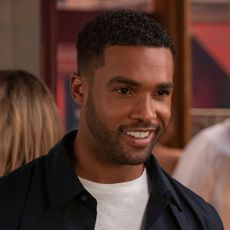 Emily in Paris' Lucien Laviscount is reported to be dating a very A-list singer
Emily in Paris' Lucien Laviscount is reported to be dating a very A-list singerBy Jenny Proudfoot
-
 Can you build muscle with bodyweight exercises? Here's what top PTs had to say
Can you build muscle with bodyweight exercises? Here's what top PTs had to saySpoiler alert: you can, but there are a few caveats.
By Rebecca Shepherd
-
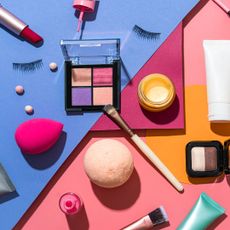 Not even I, as a beauty editor, can resist the temptation of 50% off at Cult Beauty - here are the 12 products I will be shopping
Not even I, as a beauty editor, can resist the temptation of 50% off at Cult Beauty - here are the 12 products I will be shoppingBy Katie Thomas